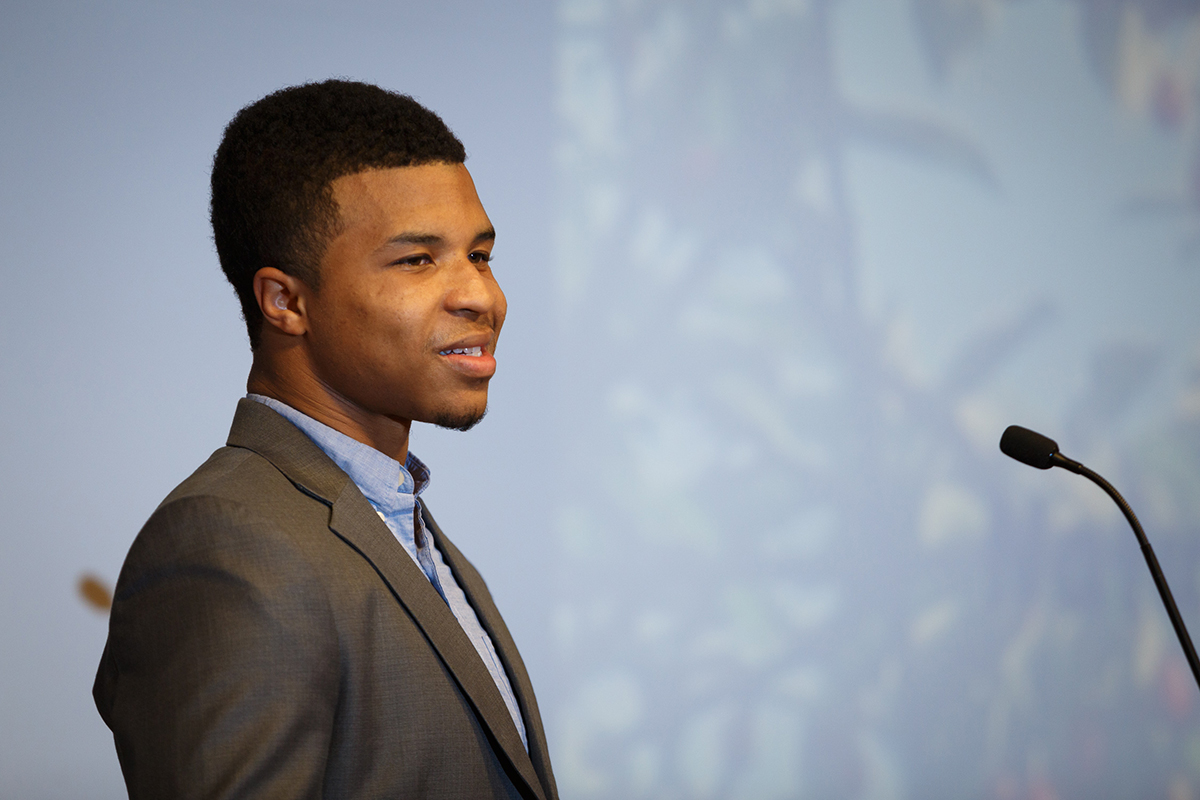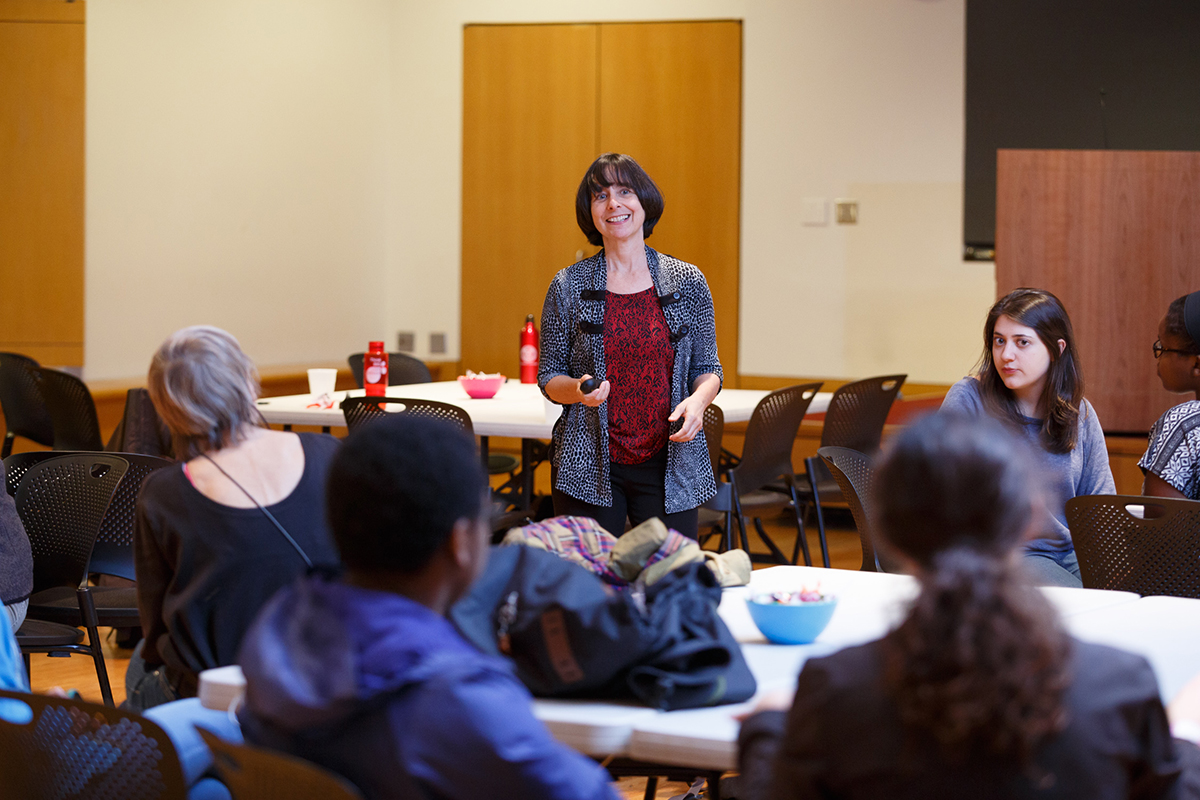Cornellians urge diverse environmental justice leadership
By Robert Johnson


Diversity should not just be about increasing the numerical representation of certain groups, or be understood as a simple set of recruiting and outreach goals. Rather, the true objective of diversity centers on forming real, sustainable bonds and relationships with different communities.
This was the central theme of talks given by Treijon Johnson ’17 and Margo Hittleman ’81, Ph.D. ’07, on Oct. 29 on campus as part of the Ideas for a Better World: Sustainability Workshop Series.
Johnson began his talk, “Green Vision: Empowering Diverse Minds Toward Sustainability,” by discussing the parallels between cultural diversity and principles of biodiversity.
In his view, the value of biodiversity comes down to “a few key adjectives”: resiliency, synergy, efficiency and beauty. The question, he said, is whether or not these values can be found in cultural diversity when considering firms, clubs and organizations – especially those focused on environmental justice.
“Are we still able to find the resiliency that we need to adjust to different problems?” he asked. “Are we able to find efficiency in the way we work together – synergies in our cultures? Do we see beauty in working together, despite our differences? I would argue that we do.”
However, Johnson said securing the benefits of diversity requires looking beyond the number of “diverse people in your organization or classroom.” There is a need and responsibility to empower diverse leaders who carry with them the perspectives and concerns of traditionally marginalized groups and communities.
Looking at the histories of discrimination and deliberate neglect on the part of public policy makers, Johnson illustrated how being left out of the decision making process has led to enormous societal inequities, including health disparities between racial groups. Citing a 2012 NAACP study titled “Coal Blooded: Putting Profits Before People,” Johnson asserted that just over half of those living near America’s top 90 emissions-producing coal plants are people of color, despite only 30 percent of the population being individuals of color.
“African-Americans are hospitalized by asthma at three times the rate of whites and the death rate [for black Americans] is 170 percent higher. It’s unclear how far the effects of coal pollution will go, but it is clear that the pollution affects asthma, lung disease and other types of diseases,” Johnson said.
Building on Johnson’s insistence on the need for diversity in leadership, Hittleman, co-founder and coordinator of the Natural Leaders Initiative, guided audience members through a workshop on “Cultivating Diverse Leadership for Ecologically Sound, Inclusive and Just Communities.” Hittleman presented an array of “tools” to enhance an individual’s ability to interact and form the type of relationships that can learn from those whose perspectives and experiences traditionally go unheard or unconsidered.
These include listening to others without interrupting, asking nonleading or open-ended questions, and taking time to “question and shift whose ideas, voices and norms are at the center” of one’s work, which Hittleman called “pivoting the center.”
“We’re trying to create a different world, a world that works for human beings,” she remarked. “That means we actually have to recognize human beings. There are not just a bunch of tasks to get us from ‘here’ to ‘there.’”
Hittleman stressed the importance of approaching each new interaction with genuine curiosity and interest in the other person. She also stressed that seeking diverse perspectives and leadership was not just a “moral good” but a requirement for solving the complex problems we face. Building real, sustainable relationships has to be a two-way exchange where there is space for each party to learn “what they don’t know that they don’t know,” she explained.
“Since so much of our knowledge is cultural, diverse leadership means, in every situation, asking ‘who else’s knowledge do we need here?’” Hittleman said. “Who else [has a] perspective that, if we don’t incorporate it, we will fail?”
Robert Johnson ’17 is a writer intern for the Cornell Chronicle.
Media Contact
Get Cornell news delivered right to your inbox.
Subscribe